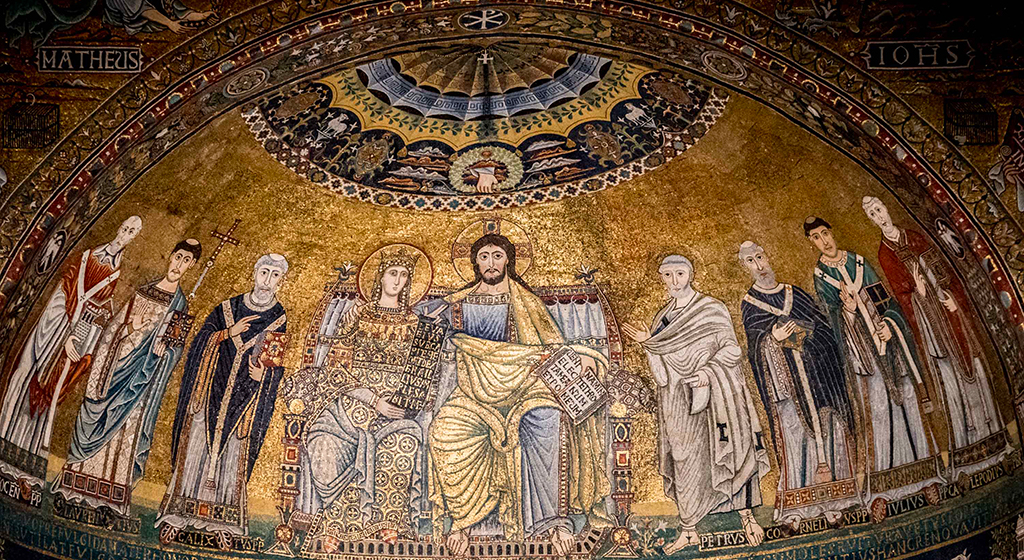Memory of the Church
Memorial of Saint Boniface (+754), bishop and martyr. He announced the Gospel in Germany and was killed in a missionary trip in Phrygia.
Reading of the Word of God
Alleluia, alleluia, alleluia
I am the good shepherd,
my sheep listen to my voice,
and they become
one flock and one fold.
.
Alleluia, alleluia, alleluia
Acts 22,30; 23,6-11
The next day, since he wanted to know for sure what charge the Jews were bringing, he freed Paul and gave orders for a meeting of the chief priests and the entire Sanhedrin; then he brought Paul down and set him in front of them. Now Paul was well aware that one party was made up of Sadducees and the other of Pharisees, so he called out in the Sanhedrin, 'Brothers, I am a Pharisee and the son of Pharisees. It is for our hope in the resurrection of the dead that I am on trial.' As soon as he said this, a dispute broke out between the Pharisees and Sadducees, and the assembly was split between the two parties. For the Sadducees say there is neither resurrection, nor angel, nor spirit, while the Pharisees accept all three. The shouting grew louder, and some of the scribes from the Pharisees' party stood up and protested strongly, 'We find nothing wrong with this man. Suppose a spirit has spoken to him, or an angel?' Feeling was running high, and the tribune, afraid that they would tear Paul to pieces, ordered his troops to go down and haul him out and bring him into the fortress. Next night, the Lord appeared to him and said, 'Courage! You have borne witness for me in Jerusalem, now you must do the same in Rome.'
Alleluia, alleluia, alleluia
I give you a new commandment,
that you love one another.
Alleluia, alleluia, alleluia
Paul, freed from chains, is led before the Sanhedrin so that the reason of his accusation may be cleared. He tries to summarize what he had already said in his apology (22:1-21) underlining that he has lived "with a clear conscience before God." The high priest considers his response brazen and orders the guard to strike him on the mouth, thus repeating, almost literally, the scene of Jesus' trial. Paul, who is intimately familiar with the differences that existed between the Sadducees and the Pharisees, with a clever move, draws the debate over his faith in the resurrection. A tumult breaks out among those who were present, till someone speaks in favour of the apostle saying what was said also about Jesus: "We find nothing wrong with this man." As the clamour grows louder, the tribune decides to have Paul brought back to his cell to protect him from a possible lynching. During the night, Paul receives from the Lord the mission of preaching the Gospel all the way to Rome: "For just as you have testified for me in Jerusalem, so you must bear witness also in Rome." Paul's "path" is now clearly marked: he "must" - Jesus tells him - preach the Gospel in Rome. It is a precious indication for those who run the risk of remaining trapped in our internal disputes and losing sight the obedience to the always new Word of God.
